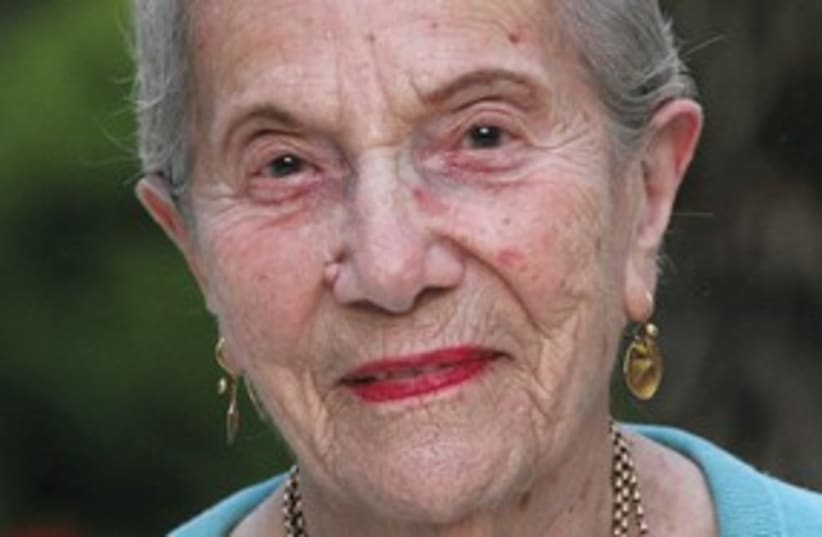One August evening warm and calmmy life was shattered by a bomb.
I grew old.
I was on the way hometo see my dear motherwhen fire struck me,grilled my flesh.
There were not tearsbut mother on my lips.
I sunk into oblivionthen to death.
For a time I was theresomewhere in a new land.
One day I was awake – old,old. No more a child.After concluding a grueling regimen of physical therapy to recover from her most serious injuries, Lefton joined the British Army in 1942 as a nurse in Palestine.She subsequently worked at a British hospital in Suez for roughly one year, where she cared for soldiers in the Allied forces, and then was transferred to a hospital in a small town in Central Italy, where she worked with trauma patients. While there, she also assisted as an interpreter in Polish, German, Hebrew and English.Lefton was stationed in Italy until the war’s conclusion, where she helped care for thousands of refugees, the multitude of whom she said were severely traumatized both physically and emotionally by the barbarity of the Nazis.In August of 1946, Lefton concluded her service in Italy and returned to Palestine, where she worked at a psychiatric hospital, and later as a dental assistant.Lefton, who longed to travel, soon moved to London, where she found work as a nurse at the London Jewish Hospital in the East End. A little over a year later she met her future husband, Alec Lefton, and married at age 26.Over the years, Lefton raised her two daughters, worked in early childhood education, and later opened her own antique shop, which she ran into her 80s.At the age of 90 she said she felt compelled to return to Israel.Asked what prompted her to return, Lefton, who is still quite vibrant for her years, said she wanted to be buried with her parents, nearby her brothers and sister’s cemetery.Among her impressive portfolio of poems, perhaps the most telling and moving of her sentiments is entitled “Jerusalem.”My heart is in the East – Jerusalem.
I live across the sea in the West.
How can I fulfill my longings, emotions when my brain is in two parts.
I am a captive, a prisoner of my own body.
I seek you in North, West, South – my eyes and heart always turn East.
I weep, dream to taste you, hold you, Jerusalem.
I stand by my parents’ graves, bow in respect.
I carry pieces of a broken heart and place them on their graves.
I grieve for their love.
My heart is bound up with you, Jerusalem.
My feet treading foreign landwaiting for my heart and mindto join as if in marriageto rejoice with music in my heartto live and die inJerusalem.Lefton said she could not imagine concluding her life any place else.“I have returned to my home,” she said.
